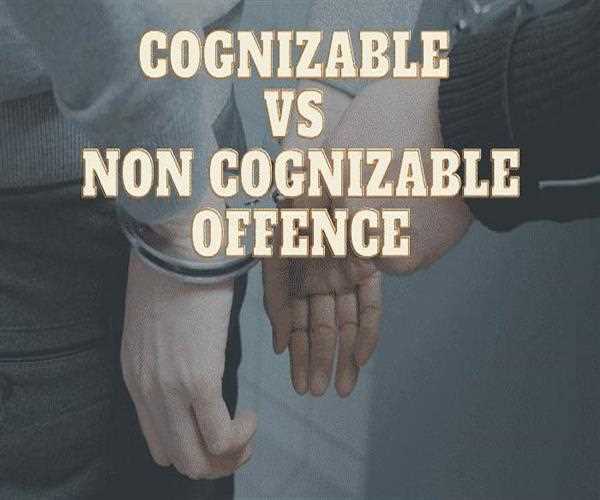Introduction
It may be true that the law of the land of every country is different but, the nature of that law is the same everywhere. Similarly in India, the law and its application are also the same for the functioning of the rules and regulations. The law is divided into many parts like substantive law, procedural law, Evidentiary law.
Here is the topic of the offense that will fall in the procedural law which deals with the many matters including the offences and also the defence of the offences.

Here the offences are defined in two ways
- Cognizable offences
- Non-cognizable offences
In the CRPC the cognizable offences as defined in section 154. Section (2) of CRPC defines
the term Cognizable as the offence in which the police officer can have the authority to arrest without having the warrant of the arrest.
Offences that come under the nature of cognizable offences are the offences that are severe in nature like murder, rape, death, dowry, etc.
Procedures to be followed in the case of Cognizable offences
FIR
This is the information copy which tells by the informant. The police will write all the information related to the incident and will make two copies of the sheet. The one will be given to the complainant and the other will be submitted to the magistrate.
Report to the magistrate
Once the report is sent to the magistrate he will send it to the related authority of the offence and will order him to investigate the matter by the subordinate officer.
Investigation
The investigation will be done by the investigation officer and under
article 21 of the constitution. We can know the progress of the investigation nut there is an exception that in a heinous crime we are not able to make the knowledge available for all the people.
Arrest
At this phase, the police or the related officer will make an arrest under the jurisdiction of his own powers.
Remand
Asked by the officer involved in the arrest
Chargesheet filing
Filed by the investigation officer in the context to the charges that he is under arrest
Trial
All the judicial inquiry and procedure comes under the trial
Judgment
The end phase of the trial is the judgment period
Punishment
According to the charges he will be punished.